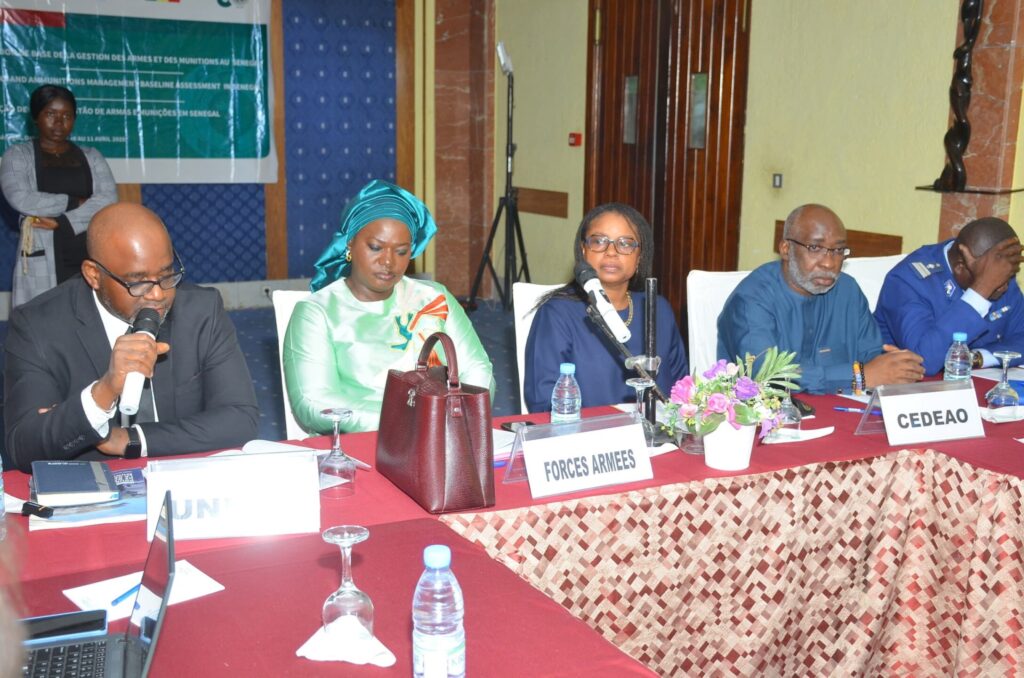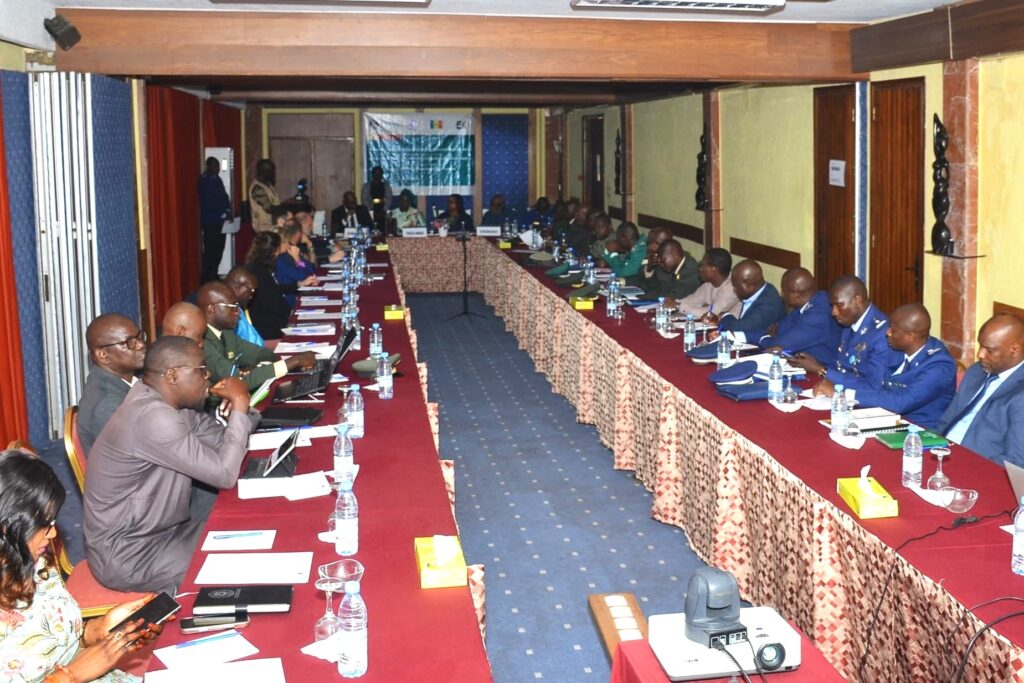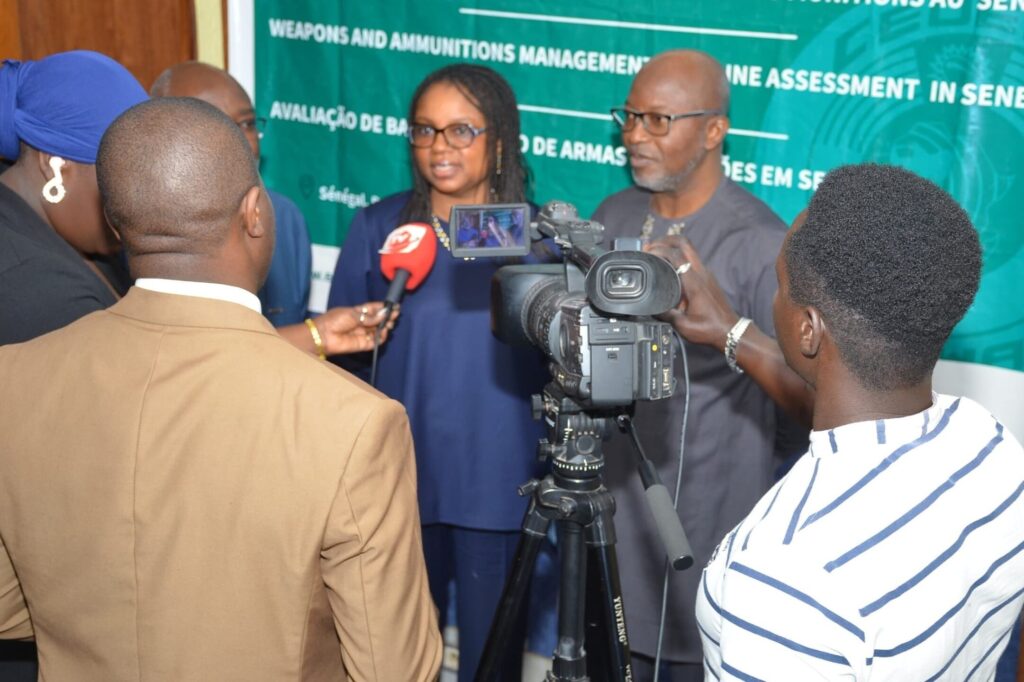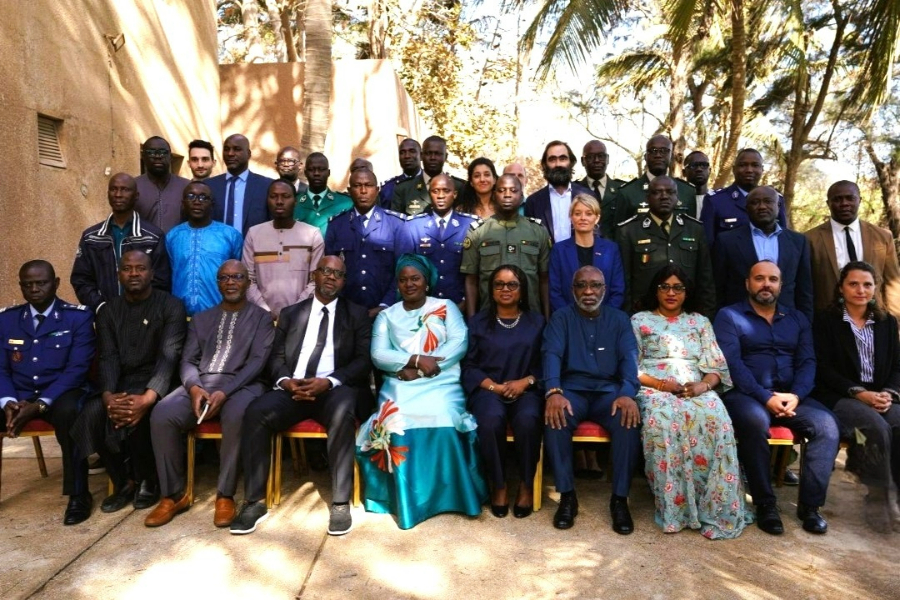From 7 to 11 April 2025, the Government of Senegal, through its National Commission to Combat the Proliferation and Illicit Circulation of Small Arms and Light Weapons (ComNat-ALPC), in partnership with the Economic Community of West African States (ECOWAS) and UNIDIR, conducted a national weapons and ammunition management (WAM) baseline assessment in Dakar. This initiative brought together a diverse group of national stakeholders for a week-long consultative dialogue, aiming to strengthen Senegal’s framework for life-cycle management of weapons and ammunition.
The proliferation of illicit conventional arms and ammunition in West Africa continues to pose a significant threat to State and human security, undermining both stability and development across the region. Recognizing these challenges, Senegal undertook a nationally led WAM baseline assessment, utilizing UNIDIR’s reference methodology to systematically review institutional and operational capacities, processes and practices, in line with regional and international standards. The assessment also identified needs and national priority areas for improvement, and fostered ownership of the arms control agenda among national stakeholders.
A nationally led WAM baseline assessment
The opening ceremony, moderated by Col. Crespin Arsène Sambou, Permanent Secretary of ComNat-ALPC, featured remarks from senior government officials, including Mame Madior Sow, Director of Cabinet of the Minister of Armed Forces. Speaking on behalf of the Minister of Defense, she highlighted the important role played by ECOWAS, the COMNAT-ALPC, and its partners, for the promotion of peace and security in support of high level national authorities and for the benefit of the people of Senegal.
Her Excellency Zelma Fassinou, ECOWAS Resident Representative in Senegal, and Mohamed Coulibaly, representative of UNIDIR, stressed the importance of this assessment in strengthening Senegal’s capacity to manage arms and ammunition effectively, and highlighted the need for continued international cooperation to address the proliferation of small arms and light weapons in West Africa.

Building foundations for the future
Over the course of the week, participants engaged in high-level and technical discussions to establish a clear baseline of Senegal’s institutional and operational capacities across ten key functional areas of WAM. These include:
- National coordination mechanisms
- The legal and regulatory framework
- Transfer controls
- Stockpile management
- Marking
- Recordkeeping
- Tracing
- Processing of illicit arms
- Weapons collection
- Disposal
The assessment also provided a platform for stakeholders to share experiences, identify challenges, and validate practical recommendations for strengthening the national WAM framework.

Driving an integrated and sustainable approach
The assessment process revealed both strengths and structural challenges within Senegal’s WAM architecture, including the need for enhanced coordination at the strategic level and accelerating the development of a strong legal and regulatory framework at the national level.
In closing, senior government officials reaffirmed Senegal’s determination to implement the options and recommendations that resulted from the baseline assessment, indicating that the results of the assessment will support the review, update and development of a new national roadmap by the Government of Senegal and its international partners to strengthen national frameworks for WAM. They emphasized the critical role of safe, secure and sustainable WAM for peace, security and development. The consultative dialogue also highlighted the importance of continuous cooperation with regional and international partners.

The path forward
UNIDIR’s Conventional Arms and Ammunition Programme, in cooperation with ECOWAS and ComNat-ALPC, will prepare a detailed assessment report as well as a publicly available WAM Country Insight in the coming months. These materials are intended to inform targeted international assistance as well as future policy development. The assessment undertaken by Senegal in cooperation with ECOWAS and UNIDIR underscored the transformative potential of nationally led, participatory approaches to arms control.
UNIDIR remains committed to supporting Member States in building resilient, effective national and regional frameworks for weapons and ammunition management. Recent similar work in The Gambia demonstrates UNIDIR’s ongoing efforts to raise awareness and monitor progress in strengthening national and regional frameworks for weapons and ammunition management.
All photographs © 2025 UNIDIR
